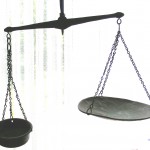There’s a new poll out on Ireland’s moral attitudes, which includes the interesting information that 61% of Irish people think that pornography is morally unacceptable, including 74% of women.
The Sunday Times, who comissioned the poll, also ran an accompanying article which takes a tone best described as sneering moralism. Ireland’s discomfort with porn is put down to sexual repression or leftover Catholic guilt. This is a very common diagnosis for the country’s ills. CS Lewis’ words about each age being skilled at spotting the vices that least afflict it come to mind.

But the most interesting charge levelled at my country was that of hypocrisy.
“What we know is that this country is consumin an awful lot of pornography, so the numbers don’t stack up,” said (Colm) O’Callaghan (an editor of education programing on RTÉ, the Irish state broadcaster). “If 61% are saying that it’s morally wrong, and yet we can’t seem to get enough of it, is the country talking out of both sides of its mouth?”
O’Callaghan is right about Ireland’s rate of porn consumption. Many of those people saying that pornography is morally unacceptable are very probably watching it themselves. There is certainly a disconnect here. There’s real hypocrisy. It’s not, to put it mildly, the best way to live.
But it’s not the worst way either.
I’m reminded of a story my cousin once told me. I can’t find an account of it online, so it may very well be apocryphal, but it illustrates the point perfectly:
A small-town police officer in the Jim Crow South (let’s call him the Sherrif), supports racist public policies. He’s pro-segregation, opposes interracial marriage, and has water-cannoned his share of civil rights protestors. He’s vocal in his admiration for Bull Connor, and soft on the KKK.
One day the Sheriff is driving around in his patrol car when he comes across a black family – mum, dad, three kids – on the side of the road, their car having broken down. The Sheriff pulls up his car, and asks the father what the problem is. Turns out the family were moving house, travelling out of state to go live closer to relatives, when the breakdown happened. The dad’s had a look, and he reckons the engine is completely gone. He’s on the point of walking to the nearest garage – they have enough money to get the car fixed, but don’t have anywhere to stay while the repairs are being done.
The Sherrif promptly offers them a lift into town and the use of his own car until their own gets fixed, and tells them that they’re welcome to stay at his house for as long as they need to.
What else would he do? He’s a God-fearing Christian man. He’s read the parable of the Good Samaritan. Besides, the family are lovely people, and their baby daughter is really cute.
Now, the Sherrif is undoubtedly a hypocrite. He has unresolved contradictions in his life. But would it really be better had he treated the broken-down family like dirt? Obviously, it’d be ideal if the Sherriff could resolve the contradiction in the right direction: let his empathic, virtuous private actions gnaw at his conscience until he changed his views on public policy to match them.
But failing that, it’s better for him to remain an inconsistent hypocrite than to become a consistent evildoer.

The same logic applies to that chunk of Ireland’s porn-consuming public who think that their actions are morally wrong. Let’s assume you share their view that using porn is morally wrong (and I emphatically do), and look at their actions in that light. Sure, they’re hypocritical, sure, they’re inconsistent. But aren’t we all?
In fact, this group of porn consumers are in a better place than the Sherrif, because they know that their actions are wrong, and thus have a better chance of redemption in the future. Sometimes this getting better will actually involve becoming more of a hypocrite in the short run – acting in the way that you would if you weren’t a porn user, pretending to be something you’re not in the hope that you will gradually transform into it. As Leah Libresco puts it: “Virtue ethics is the practice of wearing a mask until it sinks into the skin.”
But even if this pursuit never succeeded, by expressing moral disapproval of their own actions they’d still be doing good. The correct response to being told by a 70-year-old chain smoker that taking up the habit is a bad idea is not “shut up, you hypocrite!”
Now there are different things covered by the word “hypocrisy”. Preaching certain values in public and making no attempt whatsoever to live by them in private, gleefully imposing strictures on others with which you have no intention of binding yourself, constitutes great evil indeed. It was no accident that Christ reserved his harshest condemnations for the Pharisees. And, obviously, different people will have different views on the correct way to resolve contradictions.
But the ODHs (Ordinary Decent Hypocrites) that fail to live up to their own standards, that do the very things they hate, that don’t practise what they preach – they don’t deserve our contempt, or our sneering, but our compassion and support.
Because they are us.
EDIT: Judging from the comments, I could have been a bit clearer in defining ‘hypocrisy’, other than merely saying that there were different things covered by it. Here’s a pretty good version of the definition I was working off, from Wiktionary:
hypocrisy (plural hypocrisies)
- The claim or pretense of having beliefs, standards, qualities, behaviours, virtues, motivations, etc. which one does not actually have. [from early 13th c.]
- The practice of engaging in the same behaviour or activity for which one criticises another; moral self-contradiction whereby the behavior of one or more people belies their own claimed or implied possession of certain beliefs, standards or virtues.
- An instance of either or both of the above.












